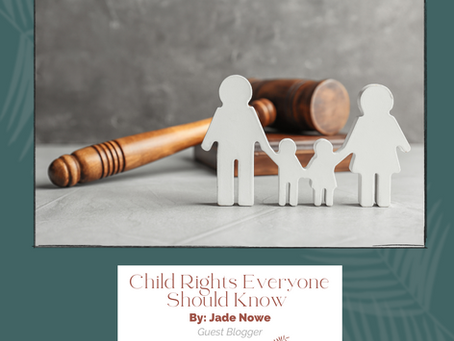top of page
Compassionate Counselling for Children, Adolescents (Teens) and Families
#TipstoBloom

Uncategorized


Impact of Therapy for Individuals with Intellectual & Developmental Disabilities
Intellectual and developmental disabilities are more common than you may realize. Folks with intellectual disabilities might experience differences in strengths and support needs that affect daily functioning in two areas: intellectual functioning such as learning, problem solving, judgment; and adaptive functioning, such as communication and independent living. These differences are often noticed in early childhood, but may not be identified until later in life.
Jade Nowe & Grace Ohrling
Dec 19, 20233 min read


What is Attachment?
Attachment refers to the relationships and bonds between people. These bonds start to form at birth, and help develop a child’s sense of security in their world. It is important for children to have secure attachments to their caregivers because this supports trust and paves the way for children to develop healthy relationships in other areas of their lives. The attachment between a caregiver and child is also a key component to a child’s emotional growth and development.
Lauren Galea
Nov 9, 20232 min read


Body Breaks
What are Body Breaks?
For children with ADHD, or simply with a lot of energy, it can be difficult to maintain focus on a task for long periods of time. Body breaks can help release feelings of frustration and stress, increase focus and stay on task, and they can help a child learn how to self regulate.
Grace Ohrling
Oct 29, 20232 min read


Benefits of Virtual Therapy for Teens
In “post pandemic” times, it makes sense why some folks are eager to book in-person sessions when beginning their therapeutic journey. However, for many individuals, virtual therapy can be incredibly beneficial… especially for teens!
Here are 5 reasons why Virtual Therapy can be beneficial for teens.
Grace Ohrling
Aug 28, 20232 min read


What is Masking?
Masking (sometimes referred to as camouflaging) is the tendency to suppress certain behaviors that might be related to neurodivergence. The term is most often used in the context of ADHD or Autistic individuals. If you are interested in learning more about neurodivergence, feel free to check out my other blog post: What is Neurodiversity #TipsToBloom.
Grace Ohrling
Aug 12, 20234 min read


Parenting With 2SLGBTQIA+ Inclusive Language
Happy Pride Month! Pride month is the perfect time to reflect on our use of inclusive language in all aspects of our lives including parenting. Whether you know if your child identifies as 2SLGBTQIA+ or not, there are a few things you can do to make them feel more comfortable with sharing their identity, and supporting their peers as well. This includes language that includes various gender identities, diverse families, and romantic partners.
Grace Ohrling
Jun 19, 20233 min read


What is Neurodiversity?
The term neurodiversity describes the natural cognitive differences between individuals, including brain function and behavioral traits. Just like racial, gender, and cultural diversity, variations in neurotypes are natural and valuable forms of human diversity!
Grace Ohrling
Jun 7, 20232 min read


Child Rights Everyone Should Know
As of 2020, there were 8 million kids in Canada. Can you guess what these youth all had in common? The answer is: their rights! November...
Jade Nowe
May 23, 20233 min read


World Children’s Day
November 20th is National Child Day in Canada and World Children’s Day across the globe. This date commemorates when the UN General Assembly adopted the Declaration of the Rights of the Child in 1959 and when they adopted the Convention on the Rights of the Child in 1989.
Alyssa Sinicropi
Nov 18, 20222 min read


National Day for Truth and Reconciliation (Orange Shirt Day)
The National Day for Truth and Reconciliation (September 30), also known as Orange Shirt Day, honours the children who never returned and Survivors of the residential school system. It recognizes the ongoing impacts of the residential school system on Survivors, their families and communities.
Bloom Child & Family Therapy
Sep 29, 20223 min read


Parents Self-Care 101
Self-care… What does it really mean? Self-care is a term that has been thrown around a lot lately, especially during the stress of the COVID-19 pandemic. Employers, teachers, professionals, family, and other parents have all been pushing this idea of taking care of yourself because it’s becoming more known of how important mental health is, and how some “you” time can make a difference in caring for your overall wellbeing, not just your physical self.
Olivia Holden BSW, RSW
Nov 15, 20214 min read


Understanding Non-Directive Play Therapy
Play therapy is an innovative and effective form of therapy for individuals of all ages, particularly for children whose natural form of expression comes through play. Play therapy dates back to the 1940s. It is usually done in a non-directive, child-centered format.
Olivia Holden BSW, RSW
Oct 16, 20213 min read


The Effects of COVID-19 on Young Athletes
Covid-19 has brought astronomical levels of disruption and uncertainty. It’s like we are all wearing a 20lb weight vest. Although we are all in the same storm, we are not in the same boat so that vest may be heavier for some than others. Nonetheless we’re all impacted.
Ellyn Klea
Aug 24, 20213 min read


Children’s Lives and the COVID Pandemic: One Year Later
March marks the one-year anniversary of the COVID-19 pandemic and it is safe to say that everyone has been impacted in one way or another, including children. Children have experienced changes in their routine, missed significant life events, loss of security and safety, along with many more challenges based on the family’s unique situation. Ask yourself: Are you physically and socially distancing from a grandparent or other loved one?
Sarah Nyland
Mar 28, 20212 min read
bottom of page
